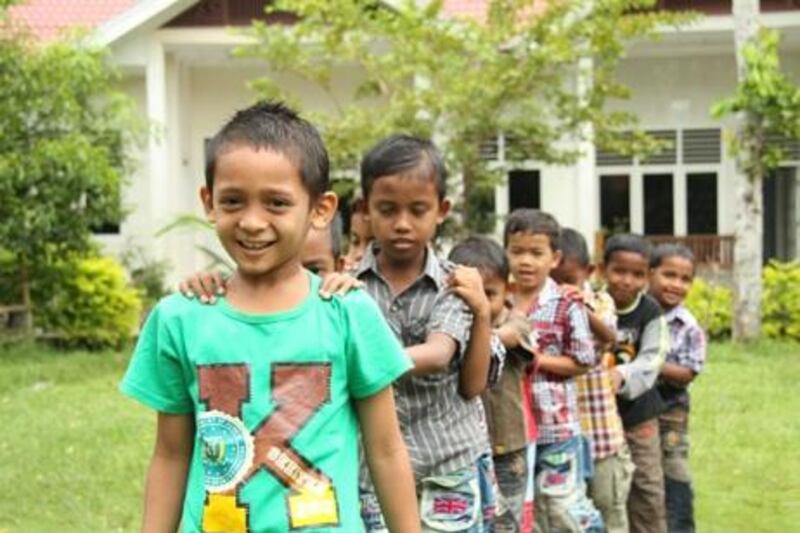DUBAI //
A UAE-based humanitarian organisation is hoping to set up an aquaponics system at orphanages in India and Indonesia.
The Kinderhut Foundation in Dubai is looking for technical expertise in this country to help set up the project.
The aquaponics system combines traditional aquaculture – fish reared in tanks – with a technique that uses the fish waste that collects at the bottom of the containers as fertiliser for hydroponic vegetable tanks – where greens are grown in water.
This twin system would allow the orphanages to have a sustainable source of both vegetables and fish to eat, and also sell on for profit.
"It's not much of an expense because items can be bought locally," said Dr Rajini Abdulgafoor, Kinderhut's manager. "We're a very small group of friends who want to do good."
The non-profit organisation has been taking care of orphaned children and destitute women for years.
During the tsunami that hit South-east Asia in 2004, the team of doctors collected blankets and clothes to give to the Red Crescent.
"It's the least we could do," said Dr Abdulgafoor, an Indian expatriate. "Watching it on TV, we felt so sad for them and we felt helpless because we couldn't do anything for them."
With her husband working at the Ministry of Health, Dr Abdulgafoor was determined to reach disaster-struck areas in Indonesia and Sri Lanka.
"The situation there was terrible," she said. "We were told there were 28 children in relief camps in Banda Aceh, so they asked us to take care of them."
But the dentist knew orphan care was not her area of expertise, so after trying to reach out to local organisations, Dr Abdulgafoor and her friends took matters into their own hands. "We were worried as to how we would manage the situation because we're not experienced in this field," she said. "So we bought 10,000 square metres of land in Banda Aceh and we started a temporary barrack."
The project now has 132 children living in 14 houses and attending local schools in Indonesia.
"It's just like taking care of our own children," Dr Abdulgafoor said. "The only difference is the absence of parents and money, but that could have happened to us.
"The most important thing for a child is a family and a home, where he can say this is my house and where there's somebody to take care of him."
With the success of the project, the team expanded it to India this year, where there are now 23 children living on a 15,000 square-metre plot of land. "We just wanted to do some good deeds," said the doctor, a mother of three.
"It's more than just medical aid that they need. It's lives, so we can't just leave it and go. Their education and upbringing depend on us, it's like social responsibility."
However, keeping the projects going has been a concern, so Dr Abdulgafoor came up with the idea of using an aquaponics system.
"The sustainability was a worry for me," she said. "So we're looking out for sustainability projects that children and mothers can survive on."
Although the orphanages currently have small-scale vegetable gardening, which provide them with a minor income, an aquaponics system seemed like the next logical step.
"It's eco-friendly and the children can eat from it as well as sell their produce if they have more," she said. "It's being done in the UAE and it doesn't need much of an investment."
Kinderhut is not the only UAE organisation to have shown an interest in developing the agricultural sector in India.
Nahtam, an Abu Dhabi social responsibility group, is planning to set up a sustainable organic farm operated by workers with special needs on the outskirts of Mumbai.
All Dr Abdulgafoor needs now to make the project a reality is the technical help to set it up.
"It would be a great help for us because we're not looking for funds, just people who know the technical aspect," she said.
If all goes according to plan, a 7,000 square-metre plot will be made available on the Indian orphanage for the system.
"To start a project is easy but to maintain it is the most difficult part," Dr Abdulgafoor said.
[ cmalek@thenational.ae ]






